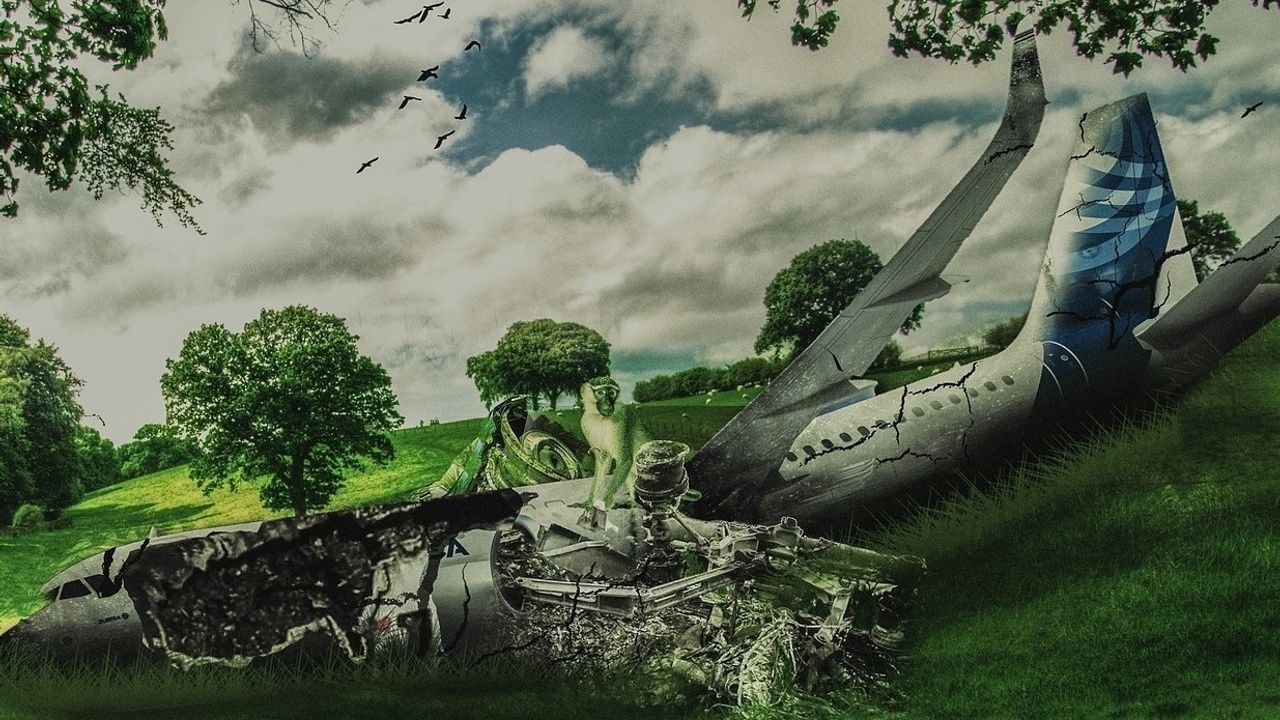How Divorces are like Plane Crashes. . .. . . and not in the way you're thinking.

Most people who know me know that I love to read. My idea of a super-fun evening is me in my pajamas in bed by 8:00 p.m. with a great book. (I know -- super exciting.)
And, my close friends know something else about me. . . . I'm totally afraid of flying. Like, I really, really hate getting on a plane.
The whole thing never made sense to me. This massive vehicle that weighs thousands of pounds somehow travels at 35,000 feet several hundred miles per hour.
I once met the most adorable man who was a retired Delta pilot. He tried to explain to me that "it's a simple matter of physics and aero-dynamics."
I was like, "you're adorable, and I'm still terrified."
So, one night some years ago, I'm snuggled under the covers reading Malcolm Gladwell's "Outliers: The Story of Success."
In that book, Gladwell devotes an entire chapter to plane crashes.
I know -- I should've just stopped reading, but I couldn't help myself.
It was chapter 7 that talked about plane crashes, and I was already way too into this book to put it down. I'm persistent like that.
But this gets even worse, not only does Gladwell talk about the cause of plane crashes (or his theory anyway), but he also says this:
Plane crashes rarely happen in real life the same way they happen in the movies. Some engine part does not explode in a fiery bang.
The rudder doesn't suddenly snap under the force of takeoff.
The captain doesn't gasp, "Dear God," as he's thrown back against his seat.
The typical commercial jetliner -- at this point in its stage of development -- is about as dependable as a toaster.
Plane crashes are much more likely to be the result of an accumulation of minor difficulties and seemingly trivial malfunctions."
(This is where my lawyer-brain wants to properly cite to the text of the book, but I'll put that aside.)
Let's take that last part in, people. . . plane crashes are "the result of an accumulation of minor difficulties and seemingly trivial malfunctions."
That is just really, really f$%!cking scary.
I was much more comfortable getting on the plane when I believed that a crash would happen only upon some single and exceptional catastrophic event.
But an "accumulation of seemingly trivial malfunctions?" That's waaay too. . . possible.
So. . . what does this have to do with divorces?
As I read Gladwell's theory on plane crashes, the answer to that question clicked in my brain (after I stopped hyperventilating.)
People who've never been divorced tend to believe that the breakdown of a marriage is the result of a single, catastrophic event, like a metaphorical plane engine that explodes in a fiery bang.
Now that I've represented hundreds of people getting divorced, I know for sure that just isn't true.
A marriage is like a properly functioning commercial airplane, it's as about as dependable as. . . well. . . a toaster.
And the irretrievable breakdown of a marriage usually does not happen all at once, or as the result of one single, terrible event.
A marriage breaking down to the point where reconciliation becomes impossible is "more likely to be the result of an accumulation of minor difficulties and seemingly trivial malfunctions," none of which, by themselves, would bring whole plane down lead to divorce.
Now that is also kind of freaking scary, isn't it?
So people who've never been divorced -- and think that they will not ever get divorced -- will hold onto the catastrophic story.
Not because it is true, but because it is easier to believe that a terrible event is the result of extraordinary and deliberate behavior -- that the line will jump up and hit you in the face before you step over it.
It's easier to believe that a divorce is the result of one single explosion because the alternative explanation feels too. . . . possible.
So why am I telling you this? Because, my friend, there are some things that I want you to know. . .
I want you to know that your divorce is not a catastrophic event.
I want you to know that you are not required to play the lead role in a tragic story.
And I really, really want you to know that getting divorced doesn't mean that you -- or your spouse -- did something wrong.
It means that you both have human brains, and one -- or both -- of you made a decision.
Sometimes good people -- well-intended, compassionate, caring people -- grow apart.
Sometimes a series of minor events -- each of which by themselves are pretty insignificant -- accumulate over time and lead one spouse, or the other, or both, to decide that the marriage is complete.
And if someone else wants to make that a tragic story -- or make it mean that something has exploded and that your life must be in a nosedive -- you can let them have that story.
Maybe it's just easier for them to think that way because the alternative feels too. . . possible.
But it doesn't mean that you have buy into drama that will not serve you in your life moving forward.
The truthful explanation is usually the simplest and most boring explanation.
No one will make a movie about your divorce, and that's a good thing.
Let it be boring.
Talk to you soon, my friends. Take care until then.



